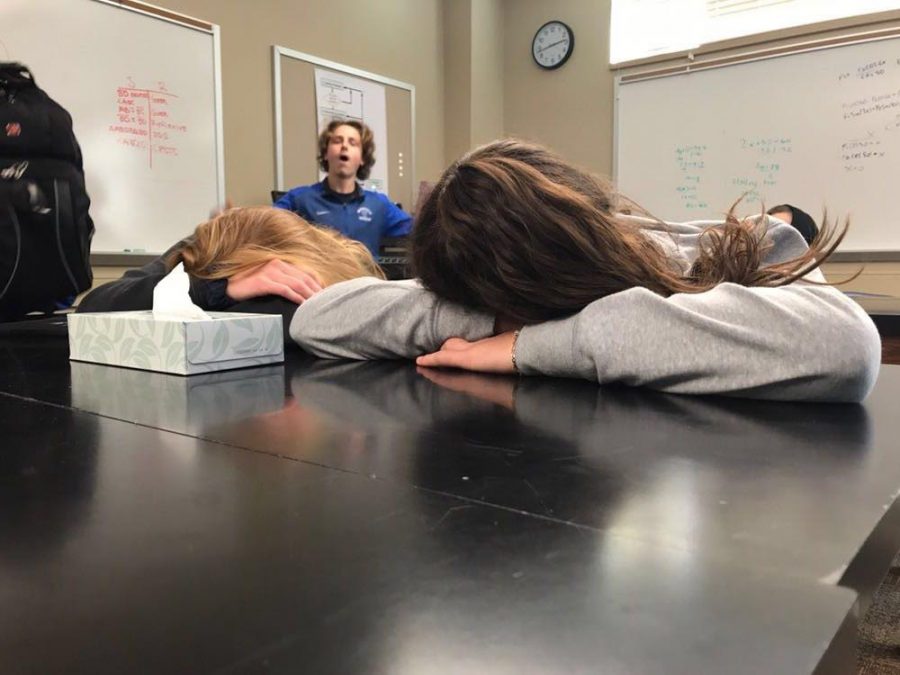Maximizing Students’ Potentials
A later start to the school day would benefit students health and education.
Regardless of who you are, mornings always seem to be a struggle. Lack of sleep, stress built on the day ahead, and groggy mornings seem to be a part of everybody’s daily routine.
High school’s schedules are responsible for more than just the drowsiness of students. There are continual health risks with the increase of lack of sleep, and one of the biggest concerns of sleep depravity is the fatal accidents it can cause. Crosley Law found that more than 100,000 adolescent car accidents a year are caused by drowsiness or falling asleep at the wheel, many of which occur on the way to or from school.
The American Psychological Association states that an increase in sleep depravity creates a higher risks for diabetes, obesity, depression, heart attack, and stroke. Sleep depravity also acts as a depressant, slowing down the brain’s motor skills significantly and making it increasingly difficult to focus and/or perform simple tasks.
“The first two periods of the day are by far the most difficult for me to focus. I can start to focus more by the third period and that is when I am most productive,” said Libby Thomas, sophomore.
The National Sleep Foundation found that it is a requirement for adolescents to sleep anywhere from 8 to 10 hours a night. Also, a study by The National Sleep Foundation discovered that only 15% of teens acquire a mere 8 ½ hours of sleep barely achieving the minimum hours required. The natural sleep patterns of teens begin to shift as they enter middle school. By high school a child’s sleep pattern has completely shifted, and a child is normally unable to fall asleep until 11 pm.
The National Sleep Foundation found that the biological sleep patterns of teens prevents them from falling asleep until 11 p.m. Therefore, on average, students should sleep until 8 a.m. to achieve full sleep. In order to achieve this, the start of the school day should be pushed back to 9 a.m. in order for students to be fully awake.
“I’m more of a morning person, but waking up this early for school is difficult and knowing my day will be filled with stress only makes matters worse,” said Ellie Callier, freshman.
If schools were to push back the starting time of school to 8:55 a.m., it would give optimal time for students to gain sleep that may have been lost from the night before, allowing students to be fully rested before attempting to go through the day. Fully rested students would be more productive and better equipped to learn. A study by The Center for Applied Research and Educational Improvement released a study last February that tracked 9,000 high school students and their performance. They discovered that with a school start time of 8:35 or later there were a major increases in how the students performed in science, math, english, and history.
However, in order for the school to accommodate a later start and a full 7 hour day, it would require the school dismissal time to be postponed until 4 p.m. It would also cause after-school activities to be pushed back as well. If students were to be home by 5 p.m. or 6 p.m. at the latest, there would still be 5-6 hours of time for students to do homework and/or extra curricular activities. This would allow students to get to bed by 11p.m. and still have optimal time for sleep.
There is no denying that sleep depravity is a health and educational issue, but after continual research and development, there is very little progress. Students and others continue to press this issue at schools around the country, but most schools refuse to do anything about it. Specifically here at Westminster, people are going to continue to press the question of why nothing is being done until administration makes some significant changes.




